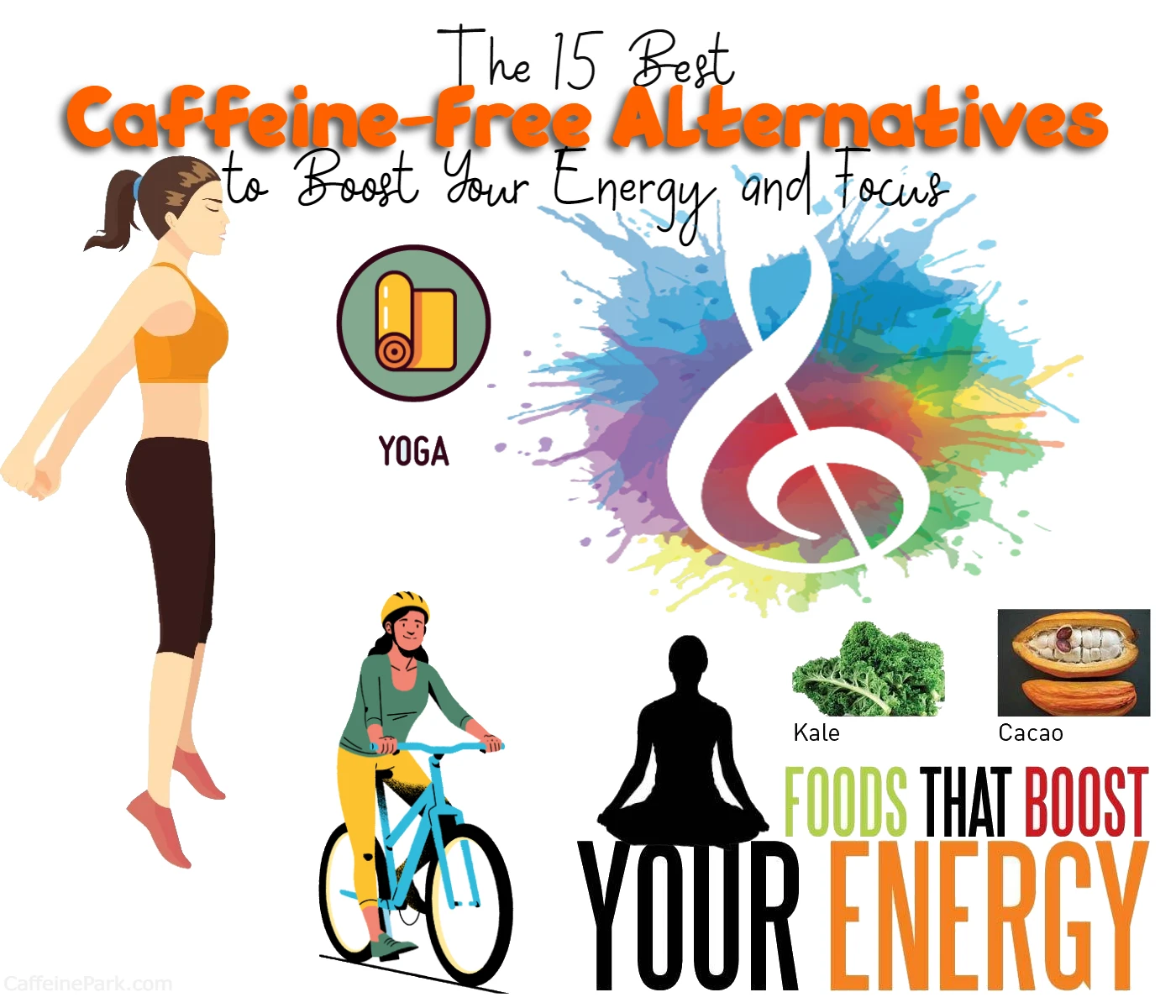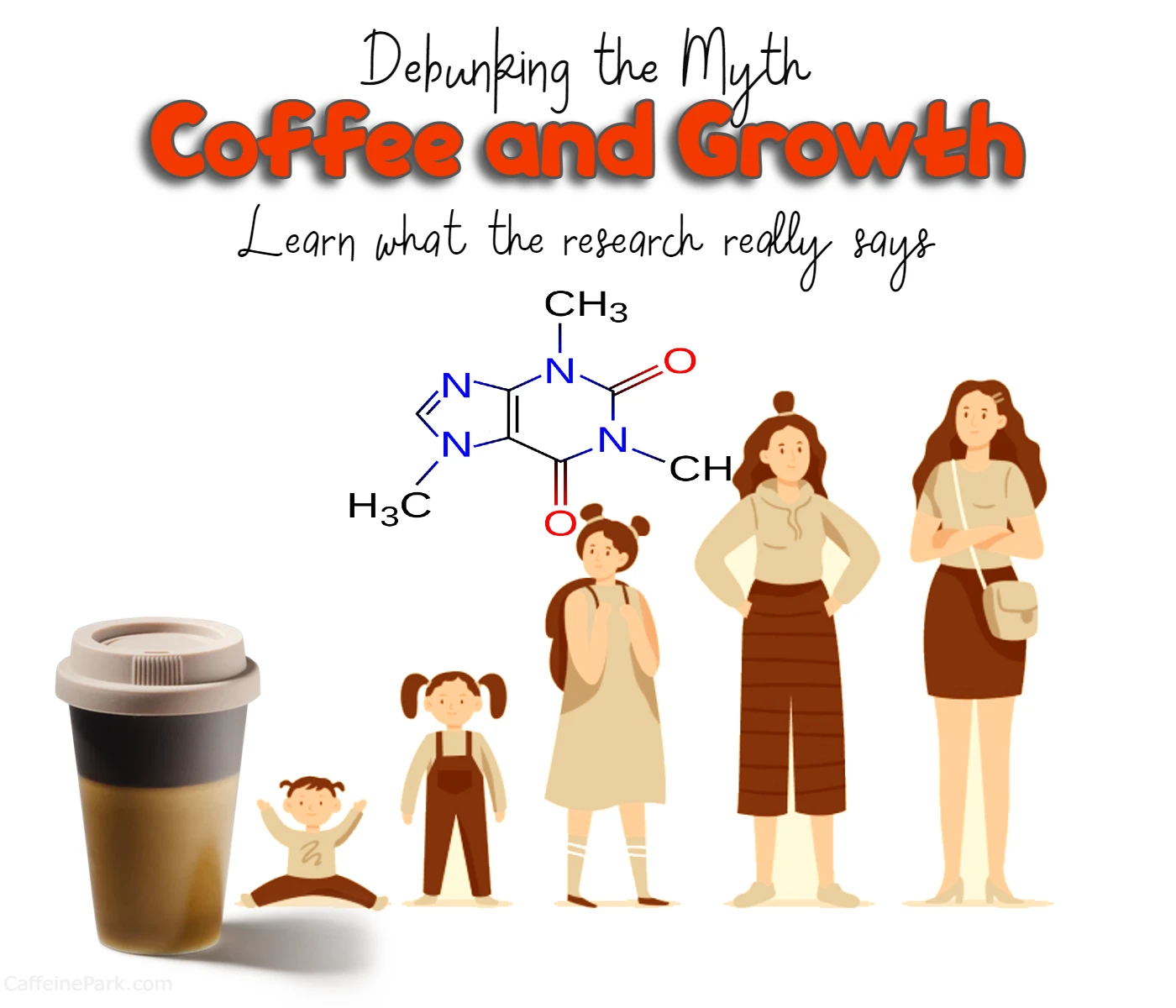Caffeine-Free Alternatives to Boost Your Energy and Focus

Welcome to my blog, where today we’re talking about the best caffeine-free alternatives to boost your energy and focus. Whether you’re looking to cut back on caffeine, or you simply want to explore some natural and sustainable options, you’re in the right place.
Caffeine is a popular stimulant that many people rely on to help them power through the day. While it can be effective in the short term, it can also lead to jitteriness, anxiety, and crashes in energy levels. That’s why it’s important to explore other options that can help you maintain your energy and focus without the negative side effects.
In this blog, we’ll be discussing fifteen caffeine-free alternatives that you can incorporate into your daily routine to boost your energy and focus. From exercise and meditation to adaptogenic herbs and essential oils, there are many natural and sustainable options to try. So, grab a cup of herbal tea, and let’s dive in! And don’t forget to read to the end of my blog for a special call to action.
The 15 Best Caffeine-Free Alternatives to Boost Your Energy and Focus
Are you feeling sluggish and tired, but don’t want to rely on caffeine to get you through the day? You’re not alone! Many people are turning to caffeine-free alternatives to boost their energy and focus. some of the best options available to you.
1. Exercise
Believe it or not, one of the best ways to boost your energy and focus is through exercise. When you exercise, your body releases endorphins, which are natural chemicals that make you feel good. Exercise also increases blood flow to your brain, which can help you think more clearly and improve your overall mood.
You don’t have to spend hours at the gym to get the benefits of exercise. Even a short 10-minute walk can help boost your energy and focus.
2. Meditation
Meditation is another great way to boost your energy and focus without relying on caffeine. When you meditate, you focus your mind on the present moment, which can help reduce stress and anxiety. This, in turn, can help improve your mood and energy levels.
There are many different types of meditation, so it’s important to find one that works for you. Some people prefer guided meditations, while others prefer to simply focus on their breath. Experiment with different types of meditation until you find one that resonates with you.
3. Sleep
One of the most important things you can do to boost your energy and focus is to get enough sleep. Most adults need between 7 and 9 hours of sleep per night, but everyone is different. If you’re not getting enough sleep, it can be difficult to focus and stay alert during the day.
If you’re having trouble sleeping, there are a few things you can try. Make sure your bedroom is dark and quiet, avoid screens for at least an hour before bed, and establish a bedtime routine to help your body prepare for sleep.
4. Water
Dehydration can cause fatigue and difficulty concentrating, so it’s important to stay hydrated throughout the day. Aim to drink at least 8 glasses of water per day, and more if you’re active or live in a hot climate.
If you find water boring, try adding some flavor with fresh fruit or herbs. You can also try drinking herbal tea, which is a caffeine-free alternative to coffee.
5. Essential Oils
Some essential oils, such as peppermint and rosemary, are believed to have energizing properties. You can inhale these oils directly from the bottle, or use a diffuser to fill your space with their scent.
It’s important to note that essential oils should be used with caution, as they can be irritating to some people. If you have any health conditions or concerns, consult with a healthcare professional before using essential oils.
6. Adaptogenic Herbs
Adaptogenic herbs, such as ashwagandha and Rhodiola, are believed to help the body adapt to stress and improve energy levels. These herbs have been used in traditional medicine for centuries, and are now gaining popularity in the West.
It’s important to note that adaptogenic herbs can interact with certain medications, so it’s important to consult with a healthcare professional before using them.
7. Nootropics
Nootropics are supplements that are believed to enhance cognitive function, including memory, focus, and motivation. Some popular nootropics include caffeine-free options such as Bacopa Monnieri, Lion’s Mane Mushroom, and L-Theanine.
It’s important to note that while some nootropics have been studied extensively, others have not. It’s also important to consult with a healthcare professional before using any new supplements.
8. Music
Music has the power to energize and focus the mind, making it a great caffeine-free alternative for boosting your energy. Listening to upbeat music can help increase your heart rate and improve your mood, while calming music can help reduce stress and anxiety.
Experiment with different types of music to find what works best for you. Some people prefer classical music for focus, while others prefer pop or rock for energy.
9. Yoga
Yoga is a form of exercise that combines movement with breath, making it a great way to boost your energy and focus. Yoga can help improve circulation, reduce stress and anxiety, and improve overall well-being.
There are many different types of yoga, so it’s important to find one that works for you. Some people prefer a more vigorous practice, while others prefer a gentle, restorative practice.
10. Mindfulness
Mindfulness is the practice of being present at the moment, without judgment. It can help reduce stress and anxiety, improve mood, and increase focus and productivity.
There are many different ways to practice mindfulness, including meditation, yoga, and simply taking a few moments to focus on your breath. Experiment with different techniques to find what works best for you.
11. Protein-rich snacks
Eating protein-rich snacks, such as nuts or hummus, can help provide sustained energy throughout the day. Protein helps regulate blood sugar levels, which can help prevent crashes and dips in energy.
Avoid sugary snacks, which can cause a quick spike in energy followed by a crash. Instead, opt for snacks that are high in protein and fiber.
12. Vitamin B12
Vitamin B12 is important for energy production, and a deficiency can lead to fatigue and low energy levels. While vitamin B12 is found primarily in animal products, it can also be found in fortified plant-based foods and supplements.
If you’re concerned about your vitamin B12 levels, talk to your healthcare professional about getting your levels tested and whether supplements are right for you.
13. Fresh Air and Sunshine
Getting outside and breathing in the fresh air can help increase energy and focus. Sunlight can also help regulate the body’s circadian rhythm, which can help improve sleep and energy levels.
Try to spend at least a few minutes outside each day, even if it’s just a quick walk around the block or sitting in a sunny spot.
14. Hydration-rich Fruits
Fruits with high water content, such as watermelon and oranges, can help provide hydration and energy throughout the day. These fruits also contain natural sugars, which can provide a quick boost of energy without the crash that comes with sugary snacks.
15. Socializing
Socializing with friends or family can help improve mood and energy levels. Talking to others can help reduce stress and anxiety, and provide a sense of connection and community.
Whether it’s a phone call, video chat, or meeting up in person, make time to connect with others and boost your energy and focus.
Conclusion
In conclusion, there are many caffeine-free alternatives available to boost your energy and focus. From exercise and meditation to essential oils and adaptogenic herbs, there are many options to try. Experiment with different techniques to find what works best for you, and don’t forget the importance of getting enough sleep, staying hydrated, and eating a healthy diet.
Remember that caffeine is not the only way to boost your energy and focus, and there are many natural and sustainable options available. By incorporating some of these caffeine-free alternatives into your daily routine, you can increase your energy levels, improve your focus and productivity, and promote overall well-being.
As with any new routine or supplement, it’s important to talk to your healthcare professional before making any significant changes. They can help determine what options are best for you based on your health history and current needs.
So, give some of these caffeine-free alternatives a try and see how they work for you. With a little experimentation and a commitment to taking care of your body and mind, you can achieve the energy and focus you need to tackle any task that comes your way.
FAQs
Some natural ways to boost energy and focus without caffeine include exercise, meditation, essential oils, adaptogenic herbs, protein-rich snacks, and staying hydrated.
Adaptogenic herbs are believed to help regulate the body’s stress response and promote a sense of calm and balance. This can lead to improved energy levels, better focus, and reduced feelings of fatigue.
While adaptogenic herbs are generally considered safe, it’s important to talk to your healthcare professional before incorporating them into your routine. Some herbs may interact with certain medications or cause side effects in some individuals.
Yes! Exercise is a great way to boost energy levels and improve overall health and well-being. Even just a short walk or a few minutes of stretching can help increase blood flow, oxygenation, and endorphin levels, leading to improved energy and mood.
Some essential oils, such as peppermint and rosemary, are believed to have invigorating and stimulating properties that can help improve energy and focus. Simply inhaling the scent of these oils or applying them topically can provide a quick boost. However, it’s important to use essential oils safely and appropriately, as they can be potent and may cause skin irritation or other adverse effects in some individuals.
Read More:





